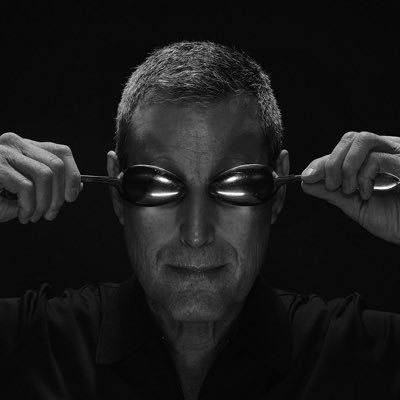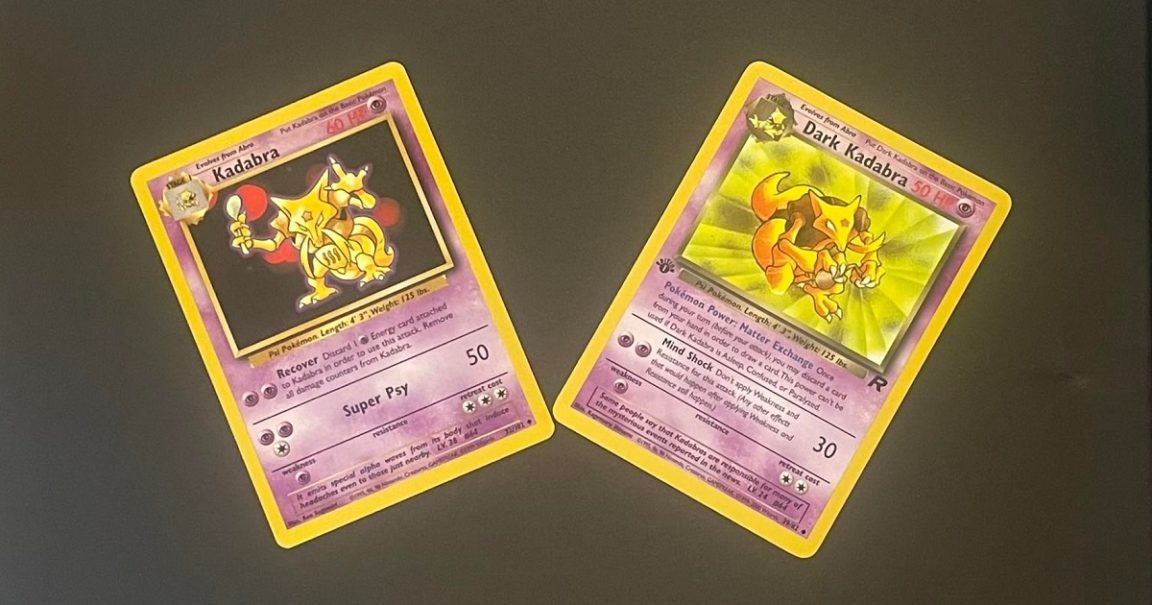The original 151 Pokemon were mostly based somewhat on real animals or relatable concepts of everyday objects. A few, however, were inspired by real people. The most notable and obvious of these were the two fighting Pokemon Hitmonlee and Hitmonchan. Named after martial arts legends Bruce Lee and Jackie Chan, of which, there was no controversy in the names.
In the original Red and Blue Game Boy Games, the famous French Mime was also referenced – Marcel Marceau as you could receive a Mr Mime via a trade with an NPC which came with the nickname Marcel.
The famous Israeli psychic and illusionist Uri Geller also received a Pokemon tribute but was not happy about it.
Who is Uri Geller?

Born 20 December 1946 in, Tel Aviv-Yafo, Israel, Uri Geller is one of the most famous illusionists in the world. He is best known for his ability to bend spoons using his mind, or perhaps other sleight of hand. The generation 1 psychic family line of Abra, Kadabra and Alakazam gives an obvious homage to Uri Geller, as both Kadabra and Alakazam are always shown holding 1 and 2 spoons respectively, which act as a conduit of their psychic powers.
Of these two Pokemon, it is Kadabra in particular that Geller has an issue with, resulting in lawsuits that saw the character removed from most media for the past 18 years, most notably within the trading card game.
The problem was extended beyond Geller’s signature spoon motif because in Japanese, Kadabra’s name is Yungerer, which is similar to his name. The Pokemon card from the 4th series of Pokemon Cards – the Rocket Expansion (1997 in Japan, 2000 worldwide) featured an evil “Dark Kadabra” card which Geller found particularly offensive – Uri Geller to BBC in 2000.
Nintendo turned me into an evil, occult Pokémon character. Nintendo stole my identity by using my name and my signature image
As a result of his various attempted lawsuits, no proper Kadabra trading card has appeared in a Pokemon Trading Card Game set since the Skyridge expansion in 2002 (in Japan, 2003 worldwide), however, now in 2023, nineteen years later we should be getting a new Kadabra card as Geller has now changed his mind and will be part of a set containing all 151 original Pokemon characters.
In 2020, Geller released the ban after years of pressure from fans and even his own grandchildren.
I am truly sorry for what I did 20 years ago. Kids and grownups I am releasing the ban. It’s now all up to #Nintendo to bring my #kadabra #pokemon card back.
It will probably be one of the rarest cards now! Much energy and love to all!
In 2023 he even posted a video to Twitter explaining the situation.
Pokemon Card 151
June 16. will feature the first Kadabra, who hasn’t appeared on cards since 2002 due to a legal dispute between Pokémon and Geller, who sued them due to the likeness yungeller and Uri GELLER. I released Pokémon from the ban. Forgive me.#Pokemon pic.twitter.com/QwLviQJbS4— Uri Geller (@theurigeller) January 25, 2023
It is great that after all this time, Geller has now understood and embraced Kadabra as a tribute to his legacy.
Kadabra in the Pokemon Trading Card Game
The above litigation and banning of printing the character in the trading card game has led to some creative workarounds which allowed Abra and Alakazam to appear in a few sets here and there without requiring a Kadabra card to be printed.
Both Abra and Alakazam appeared in Mysterious Treasures in 2007, marking the last time that Abra was featured in the card game. Abra’s attack “Ultra Evolution” allowed it to skip the missing Kadabra card to evolve straight into Alakazam – “Search your deck for Alakazam and put it on Abra (this counts as evolving Abra). Shuffle your deck afterward.”
Alakazam ☆ from Crystal Guardians, Alakazam 4 from Rising Rivals, Alakazam-EX from Fates Collide, Alakazam V from Vivid Voltage and Radiant Alakazam from Silver Tempest acted as basic Pokemon, meaning they did not need to evolve from its previous stages to be put into play.
There is no doubt that the new set featuring all of the original monsters together for the first time will be highly popular.





